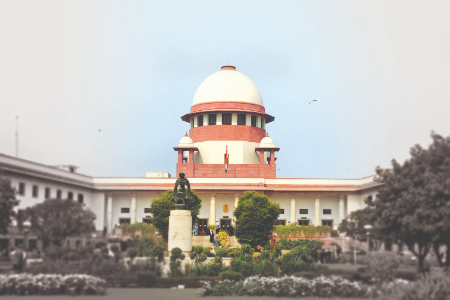SC grants courts power to alter arbitral awards under limited circumstances

New Delhi: In a landmark decision on Wednesday, the Supreme Court ruled that courts have limited power to modify arbitral awards under the Arbitration and Conciliation Act, 1996. The 4:1 majority verdict is expected to significantly impact both domestic and international commercial dispute resolutions.
Chief Justice Sanjiv Khanna, delivering the majority opinion alongside Justices B R Gavai, Sanjay Kumar, and Augustine George Masih, stated that courts can alter arbitral awards under specific circumstances but urged judicial restraint.
“The court has limited power to modify arbitral awards under Sections 34 and 37 of the Arbitration and Conciliation Act, 1996,” noted the Chief Justice. He added, “The special powers of the Supreme Court under Article 142 of the Constitution can be applied to modify awards. But this power must be exercised with great caution within the limits of the Constitution.”
Justice K V Viswanathan provided the sole dissenting opinion, holding that courts should not have the authority to alter arbitral awards at all. The majority verdict outlined several scenarios where courts could exercise their “limited power” to modify awards, including cases where “the award is severable by separating the invalid portion from the valid portion” and to “correct any clerical, computation or typographical errors which appear erroneous on the face of the record”.
The Court also determined that judicial power extends to modifying “post-award interest in some circumstances”.
This ruling stems from the case of Gayatri Balasamy v ISG Novasoft Technologies Ltd, which prompted a larger examination of courts’ powers in arbitration matters. The issue was referred to the Chief Justice by a three-judge bench in January after preliminary hearings.
During the three-day proceedings in February, Solicitor General Tushar Mehta and several senior advocates presented arguments. One group, led by Senior Advocate Arvind Datar, contended that courts empowered to set aside arbitral awards under Section 34 could logically also modify them. Opposition counsel argued that the term “modify” cannot be read into the statute. While Section 34 of the Act provides for the setting aside of an arbitral award on limited grounds such as procedural irregularities, violation of public policy, or lack of jurisdiction, Section 37 governs appeals against orders related to arbitration, including those refusing to set aside an award. Like Section 34, it also aims to minimise judicial interference while addressing exceptional cases requiring oversight.



